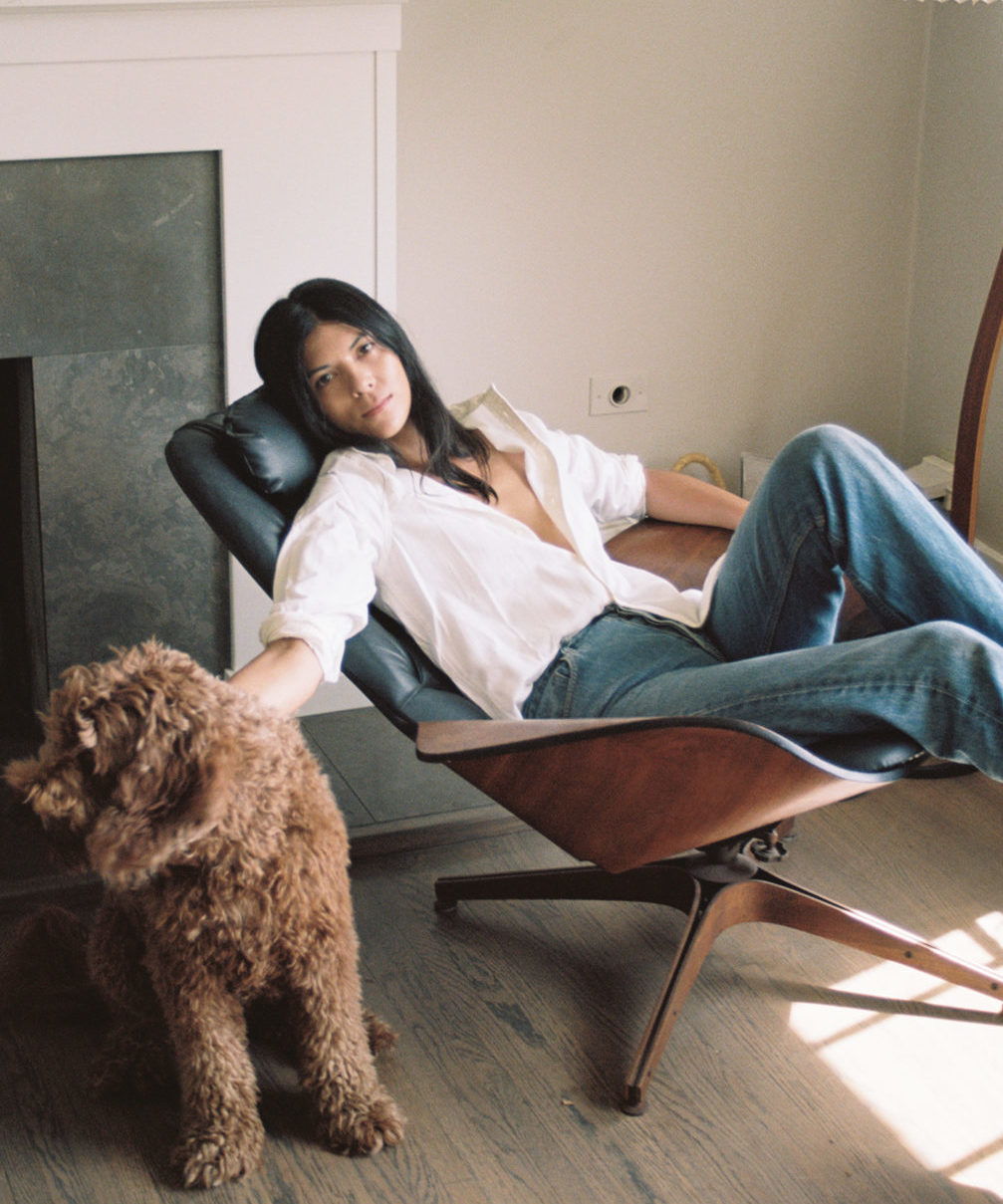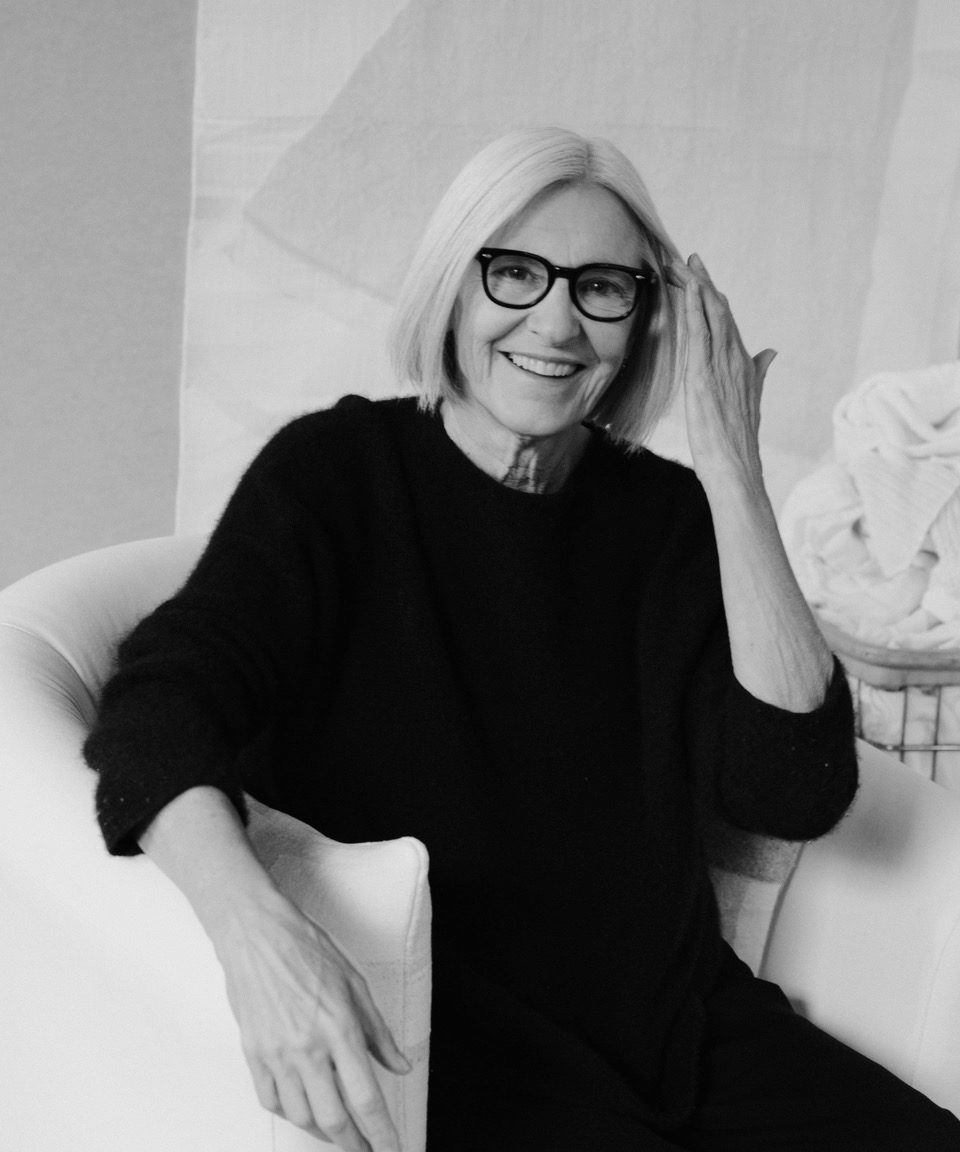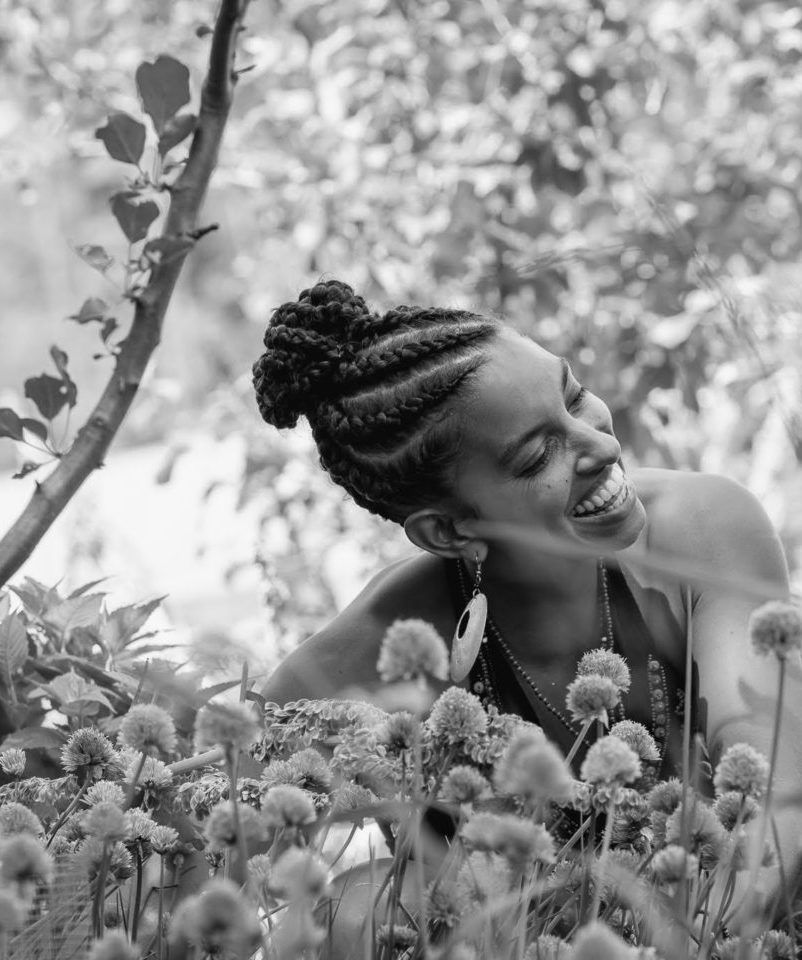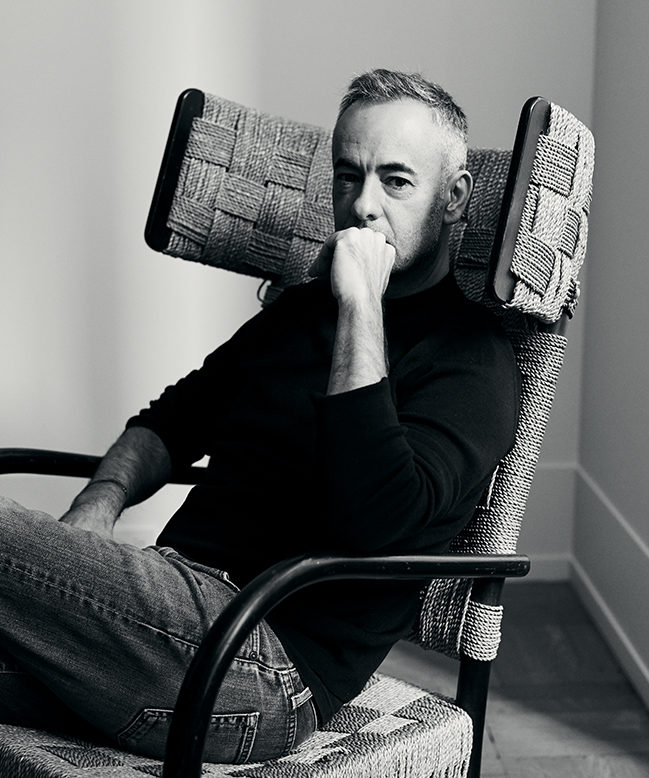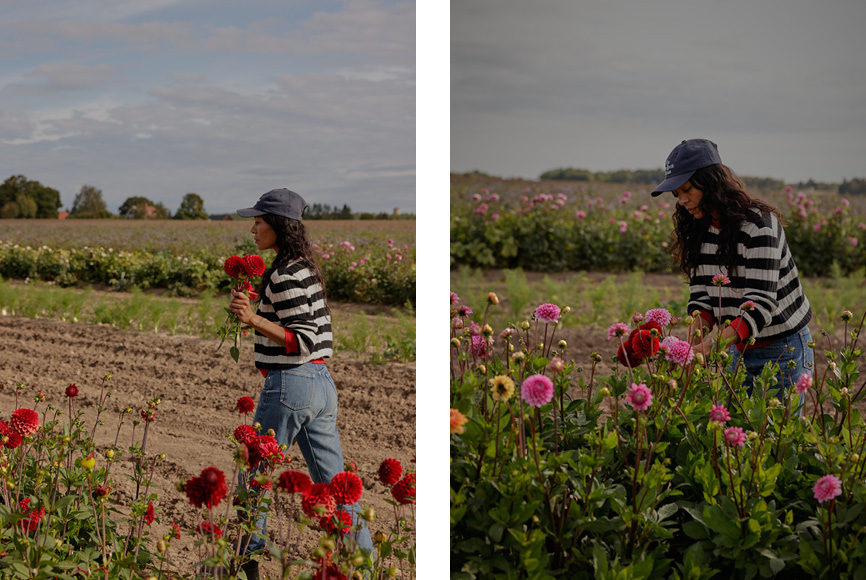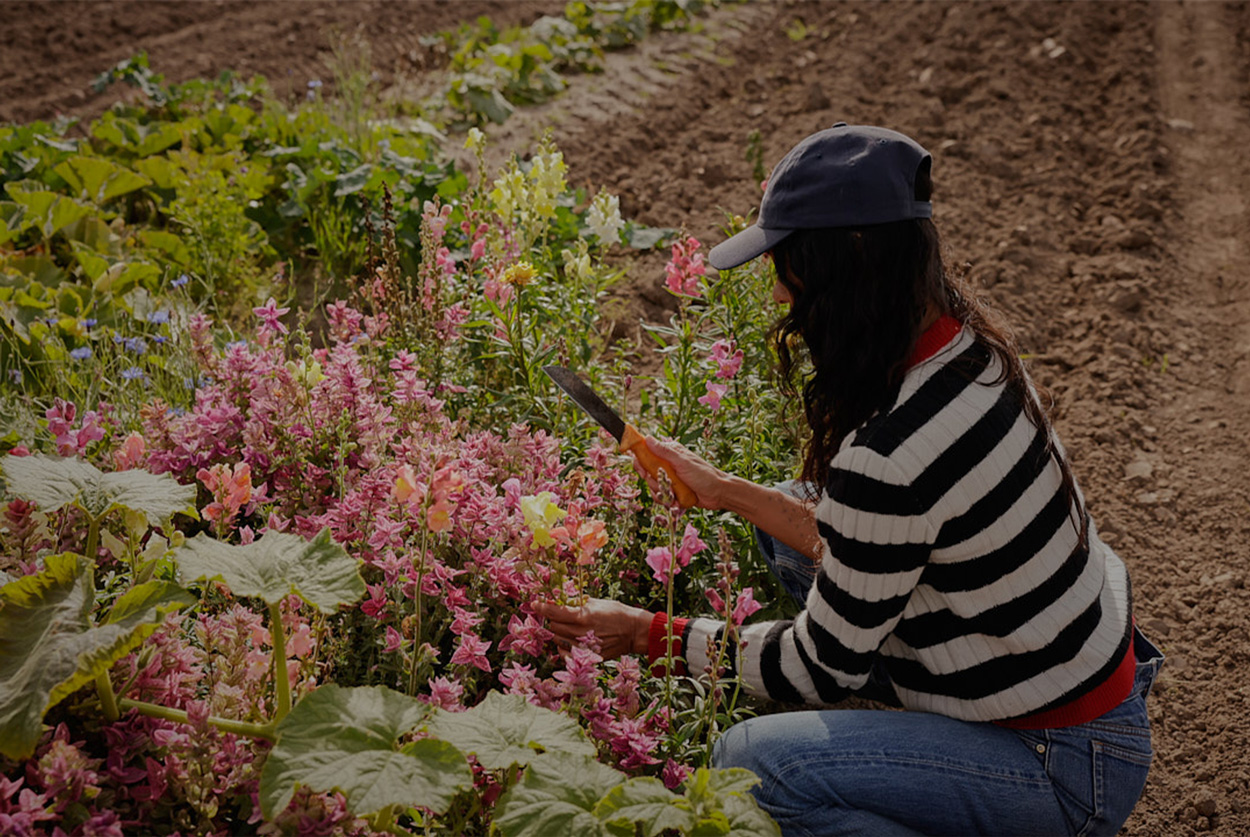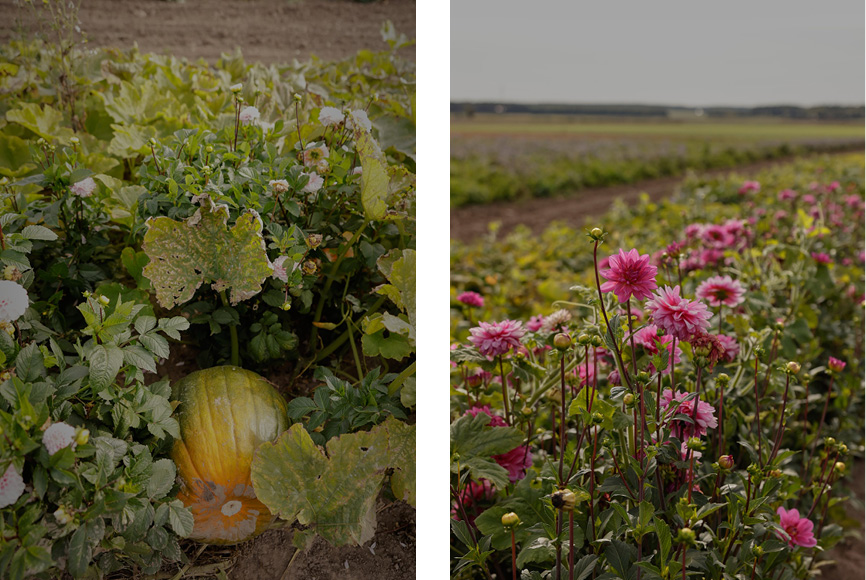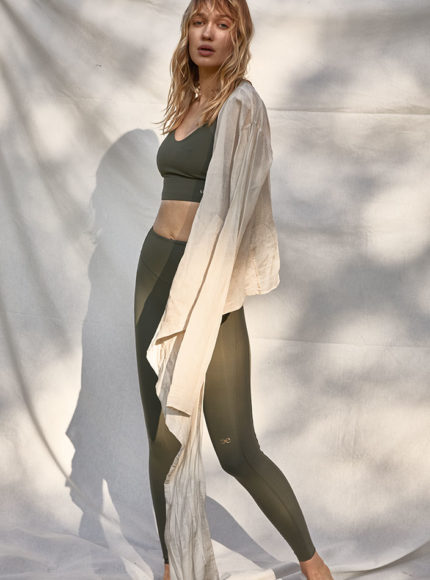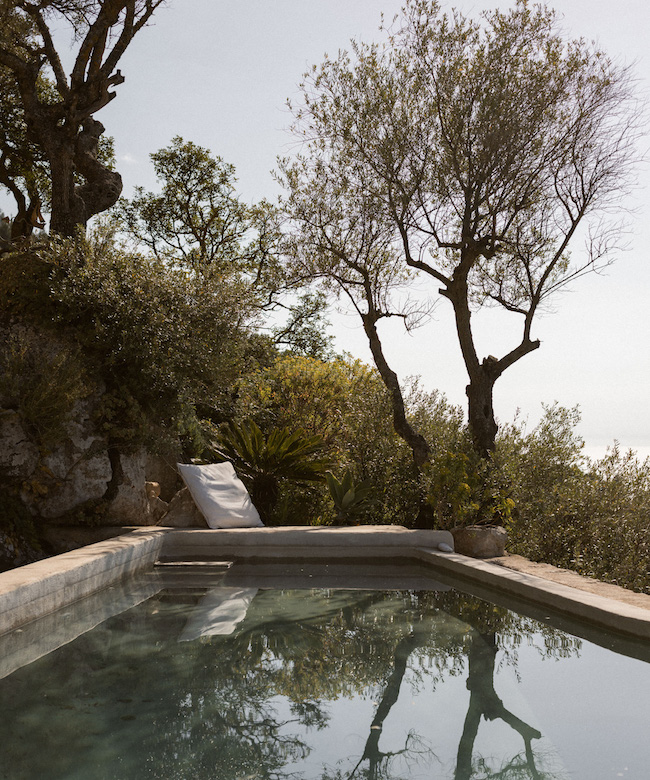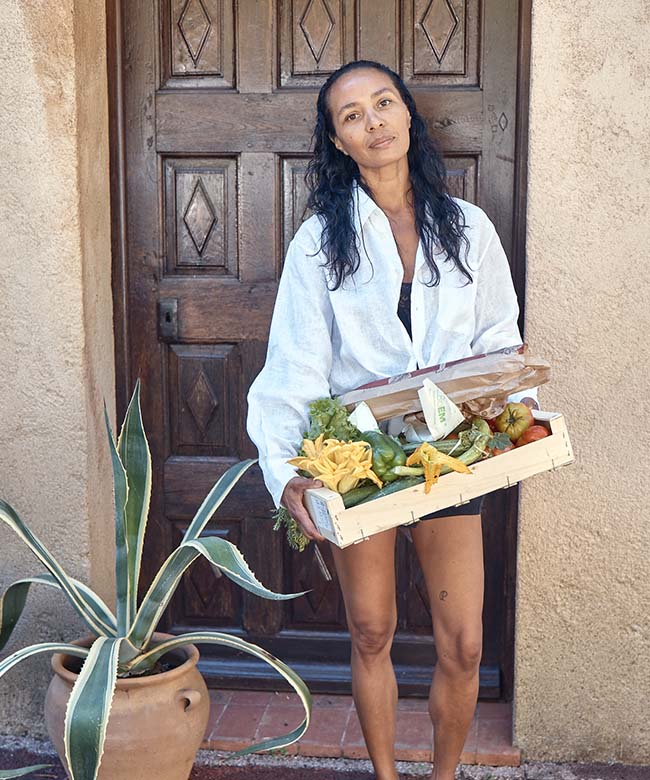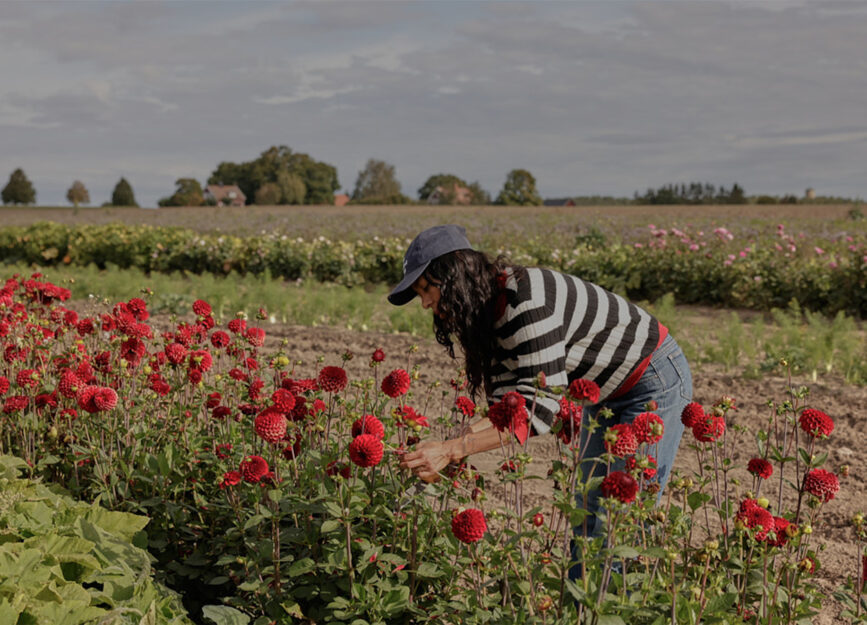
@in.aurea

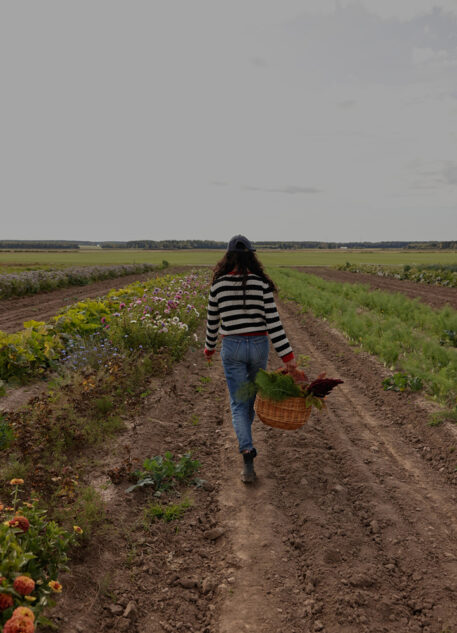
Food & Garden
Musings On The Food For Thought Retreat By Johanna Ljunggren
Today we speak to our friend Johanna Ljunggren of @in.aurea. On her latest venture in collaboration with @charlottecmanning, the Food for Thought Womens Retreat. This beautiful womens retreat includes everything from ecology to story-telling to culinary arts and movement. It such an incredible concept in every way, but we would expect nothing less from Johanna. She also shares about how they have incorporated sustainability into this retreat as much as possible.
First of all, can you tell us a little bit about your background in the food and womens retreat space?
Over the past two decades, I have been hosting, teaching, and practicing at various retreats. Initially, I began as a yoga teacher and later expanded my role to include culinary creativity. My journey started with studying Ashtanga Vinyasa Yoga in Mysore and eventually led to hosting surf and yoga retreats in Costa Rica and other destinations. After teaching yoga for 25 years, I felt the need to broaden the concept of retreats.
One thing that has struck me is how the wellness and yoga retreat space has become increasingly exclusive, to the point where it stops including those who need it the most. This space has evolved into a binary environment. And this all-or-nothing atmosphere creates a significant barrier for many individuals seeking wellbeing and connection.
Our pilot retreat for the Asparagus season revealed this starkly. 100% of participants felt they had never truly belonged at a retreat before. This suggests that the current system is failing to be inclusive. Furthermore, despite the abundance of self-help publications, podcasts, and posts, mental health continues to decline. Highlighting the broader failure of these systems. There is no blame here; I include myself as part of the problem, as I live and work within many failing systems. As artists and practitioners, we have a responsibility to share our stories and create spaces that foster genuine connection and inclusivity.
What was Food For Thought Womens Retreat born out of?
It has been brewing in me for quite some time. After 15 years of teaching yoga full-time, I stopped because I felt something was missing. Parts of me, especially my artistic side, didn’t get enough space to flourish. So, I returned to what I now call my day job. Despite working in industries like Beauty, Fashion, and PR, I still felt something was amiss. Ironically, the reasons were the same as why I left fashion years ago at the beginning of my yoga journey.
Looking back, I realize my approach was too romanticized. Influenced by what I thought it should be rather than trusting my gut instinct. My vision didn’t emerge from enlightened illumination; it emerged from discomfort. Like a pebble in your shoe that you try to ignore, but its presence becomes increasingly unbearable. My mother once said that sometimes I say yes but then act no because I don’t listen to my inner voice, the “gut” instinct. So now, I listen.
For years, I’ve had a vision to weave the act of storytelling, culinary arts, and movement with crucial topics like human induced climate decline and social justice into my work. I wanted to develop a space for people to explore this—something beyond a retreat. Nonetheless, let’s not complicate things; this is a retreat.
However, instead of retreating into oneself and staying there, we want to invite practitioners to step out and react to what is happening around them. Through the art of storytelling in various forms. We get to ask ourselves: Where do stories come from? We make space to pay attention, listen, and process.
You and Charlotte come from two relatively different backgrounds – can you tell us why you came together to co-create this womens retreat?
Actually, Charlotte and I share a similar background, and I mentioned this to her the other day. Inviting her to be part of this came to me clearly, and I spoke the words in that instant. The idea came during the afterparty of my 50th birthday, an eve for new beginnings. To put it simply, we both cherish poetry and storytelling, and at times we both feel excluded from creative spaces that still favor like-mindedness.
Charlotte was born in Sweden to a Swedish-American mother and an African American father, and she was raised in Minnesota from the age of four, attending an American school. Although I have no real connection to my birth country, it has consciously and unconsciously shaped who I am. We moved to Sweden when I was 12, so I spent my childhood, the years of wonder and mystery, living in magnificent countries and cultures.
Charlotte and I share a bicultural experience, often feeling only partially at home in either place or culture. I struggled to settle in Sweden, but connecting with people like Charlotte made it feel okay to live here.
You are combining so many amazing facets of life like ecology, story-telling, culinary arts and movement to bring into this women’s retreat….can you tell us a bit about how you decided what would be included in the retreat and why?
Honestly, the primary reason is that I feel the wellness space has lost touch with what well-being truly is. It has become overly “edited,” and I wanted to delve deeper than just the surface. Hopefully, in the future, we can offer different forms of storytelling—oral, crafting, movement, or the profound silence of listening.
After the retreats, you don’t have to feel the need to write a book or poetry, but hopefully, you will find what moves you. The world needs storytellers who can inspire our families, communities, leaders, organizations, and educators. Intellect comes with responsibility and should be practiced with humility. Storytelling is more than words on a page or screen; it runs deep in our veins and connects us to nature in unseen ways. I can’t stress this enough, and I have said it before for every percentage of intellectual knowledge, groundbreaking facts, and financial acumen acquired in educational institutions, there should be an equal inquiry into emotional and spiritual intelligence.
Remember that language is a powerful tool that can empower, motivate, and inspire us, but it can also perpetuate harm. We want to extend an invitation to study yourself and the stories you live by. Some of these stories might not even be yours, but over time, you have come to accept them as such. These are the stories you need to challenge.
You guys will be working on “confronting the state of the world” which is so incredibly important – how do you plan on doing this in a gentle way?
That’s a tricky, because people tend to look away when you mention the “state of the world.” But it is possible to confront these realities and still believe in the world’s wonders. I am a living example of that. Most of the time, I feel we humans have messed up. But then I notice the small things, the random acts of kindness that happen around us in daily life. It is a gift to be here, and it’s challenging to share the hardships and make them bearable. This is where I believe storytelling can ease its way into human hearts. Learning can be an act you do at your own pace—not driven by the noise of the media, but in a quiet and expansive way. Pay attention, listen, and learn to marvel at every curb and cobblestone of your life.
Where did you decide you wanted the first womens retreat to take place and why there?
I was overjoyed when Magdalena, a dear friend and the driving force behind Hermelins Farm, approached me five years ago about hosting retreats in her future project, The Red Greenhouse. Hermelins is a certified organic vegetable farm in Skänninge, Sweden, growing over 30 varieties of vegetables, and has been home to the Hermelin Family for nearly 40 years. The family includes Olof and Magdalena, their three children, Sonja, Sixten, and Sigge, two Westie dogs, Peggy and Polly, and several farm cats. Since 2007, Olof has managed the farm, continuing a tradition of family farming spanning generations.
The newest addition to the farm is The Red Greenhouse. This cottage-inspired residence is intimate and newly renovated, accommodating 6 – 8 people and overlooking the farmland. Amenities include a greenhouse, outdoor kitchen with dining area, pool, sauna, showers, three root vegetable-themed double bedrooms with private bathrooms, an industrial kitchen, a communal area, and a private “hen house” in the backyard. Additionally, the farm boasts acres of land and a family-owned grocery store and coffee shop. This bright and welcoming residence is what inspired our retreat concept.
The land and the farm itself are a retreat. Stepping onto the soil, feeling the earth, and witnessing the struggle to adapt to the volatile weather patterns that have emerged over the last decade provide a grounding experience. This is reality, and reality is a great muse for storytelling.
How are you going to focus on the very important theme of inter-connectedness?
Cora, everything wraps into one another whether we want it to or not. How can storytelling connect to movement? Through the stories of the body. The formation and structuring of fascia begin in the development of the fetus, laying down the groundwork for the complex web that permeates the entire body. Fascia is not simply mechanical; it’s deeply integrated into our biological development from the earliest stages of life. It serves as a portal for memories, instinct, and nature. Nature and humans share the ultimate bond, reflecting the same rhythms and cycles. Our bodies adapt and transform as the seasons change and the Earth breathes.
The history of ecology is fascinating, and I love to merge it with physical teachings and movement. For mammals and the Earth’s soundscape, the most significant event in early mammalian evolution was the development of milk. This gift led to the growth of the throat and jaw, enabling young mammals to suckle. As a result, throat bones and jaws evolved and became more complex, allowing for a wide range of sounds. Human speech and vocal culture come from ancient mammalian developments, giving us the ability to communicate and share stories.
We know today that plants and all living beings communicate, even bacteria and yeast. Still, it’s not the same way as us humans. Human language is unique to our species, requiring a combination of genetics and culture. The development of brain, memory, speech, and hearing allowed us to communicate and share ideas and emotions through sound. The subtlety and range of human speech and vocal culture is a heritage from ancient mothers. They gave us human speech and song.
I believe that all the Earth’s sentient and non-sentient beings have a soundscape of their own, and through them, we can connect to those primordial sounds—be it earth, wind, water, or fire. These sounds are our heritage, interwoven with the stories we tell.
By embracing this dance, this beautiful web of connectivity, we are not merely improving our physical form. We are attuning ourselves to the ancient melodies of existence, resonating with harmony, balance, and grace. It is a practice not just for the body but for the soul—a way to move with strength, wisdom, and understanding.
Can you tell us a bit about how food will play an important role in the womens retreats?
Hehe, well we named the retreat “Food for Thought” for a reason, and I have punctuated this text with analogies referencing food. My travels have influenced my approach to wellbeing and our relationship with food. Over the past 100 years, we have developed a broken food supply chain and lost much of our knowledge about living in harmony with nature. When I am at my mothers in France, we go to markets, get to know the farmers and suppliers firsthand, and I am lucky to have gotten to know Magdalena, who is the true hero in this story.
I am amazed every day when I see health posts in media promoting unseasonal foods packaged in plastic wrappers to “save time.” This convenience comes at a significant cost. Saving time in this manner only prolongs the healing process for ourselves and the Earth. Fast food and fast fashion are the slowest ways to sustain the overall health of our planet and humanity.
Take food, for instance—something we all need to survive. Learning more about the food we eat can significantly impact sustainability. One important step is to assess the value chain: Does the product support a sustainable value chain? For example, in Sweden, most vegetables come from greenhouses in Almeria, Spain. This system is fundamentally extractive, often involving modern slavery, and produces around 33,500 tones of plastic waste annually. By choosing not to support such industries, we can make a difference.
We can collectively contribute by making informed choices. This shift in perspective has deeply influenced my daily practices and routines. I now focus more on actions beyond personal well-being to contribute positively to the wider community.
Can you tell us a bit more about the upcoming womens retreat in September?
Oh, it is the harvest season. We are currently reaching out to chefs and culinary experts to host the communal kitchen, as we prepare all meals together with our guests. Charlotte and I are also curating the structure for storytelling and movement, aiming to leave guests enriched and full of nutrition for the soul.
We also want to incorporate fun and relaxation, as the topics we discuss can be hard to digest. We aim to utilize storytelling in an uplifting way. Guests can expect plenty of freshly harvested vegetables, flower and herb binding classes, nature walks, spa time with facials and herbal teas, and much more.
Our goal is to create an experience that nourishes both the body and the soul, providing a harmonious blend of enrichment, connection, and enjoyment.
Useful links
For anyone wanting to learn more about this womens retreat, or Johanna Ljunggren:
@foodforthought_retreats or reach out via mail: whatdoyouhungerfor@gmail.com
Keep a look out for their new website coming soon! @foodforthought_retreats @the.redgreenhouse
Learn more about Johanna Ljunggren here
Finally, what does sustainability mean to you at Food for Thought Retreats?
One of my biggest concerns in the fields of healing and wellness is that many innovators operate within competitive systems for attention, funding, and business. This can detract from the true essence of healing and helping others. By focusing on sustainable and mindful consumption, we aim to create a retreat experience that nourishes both the individual and the planet.













